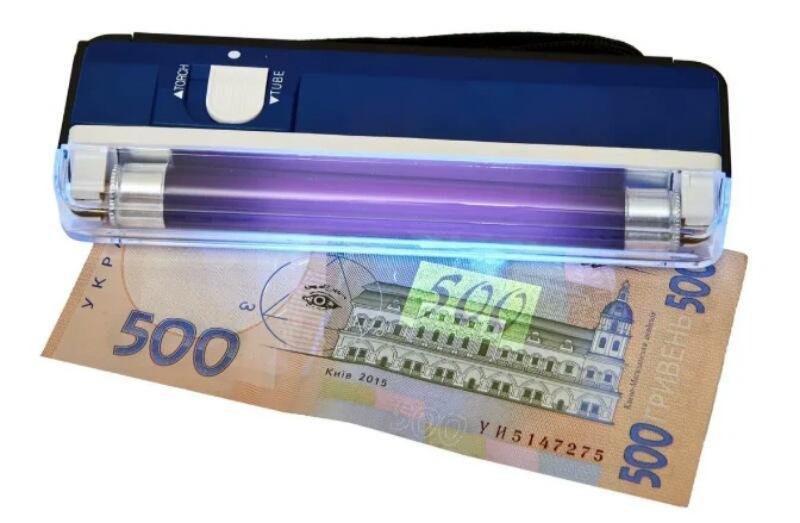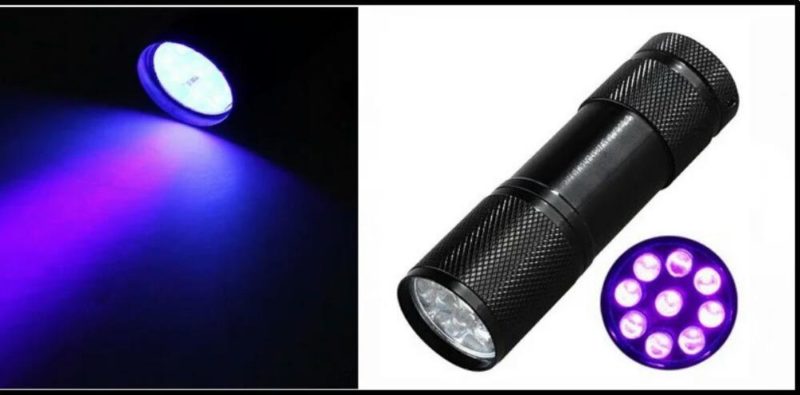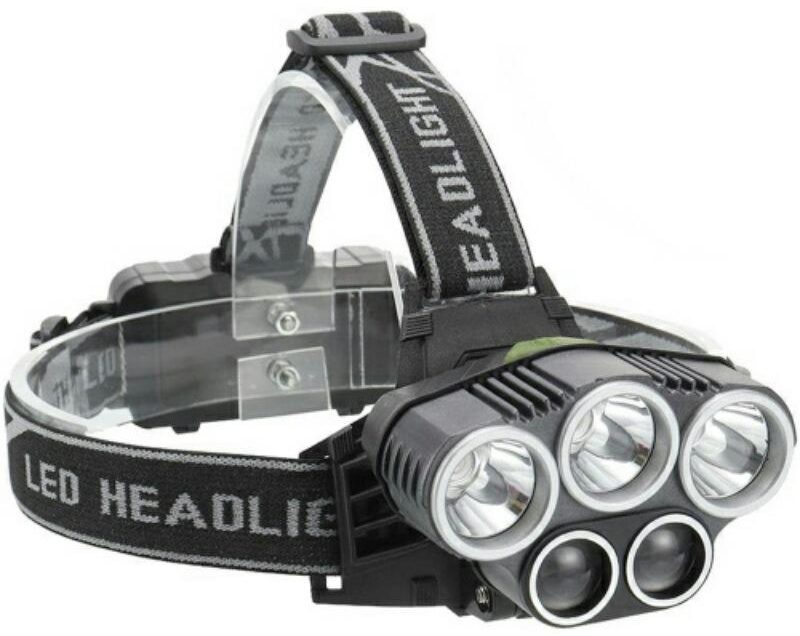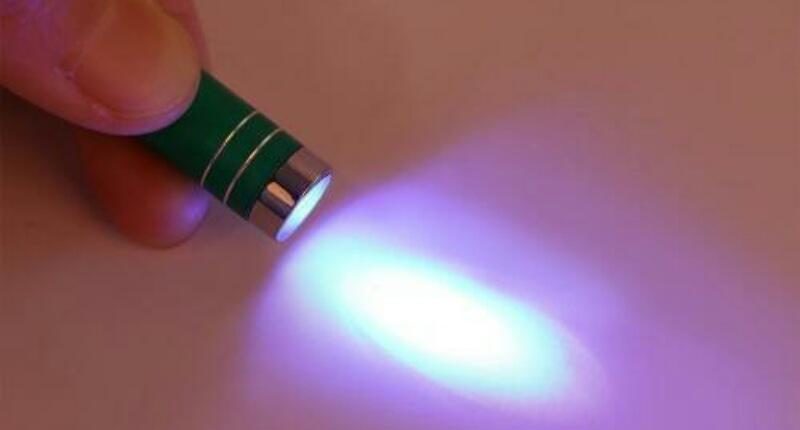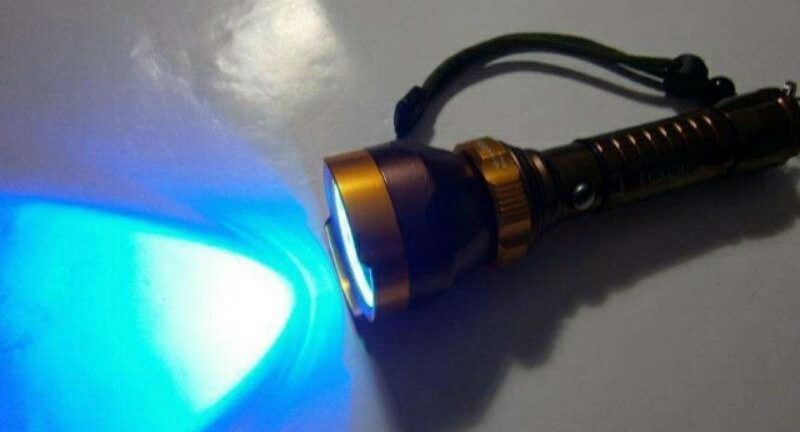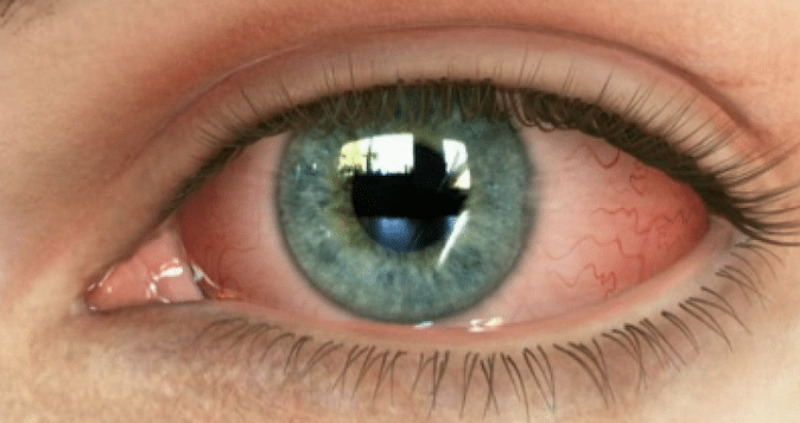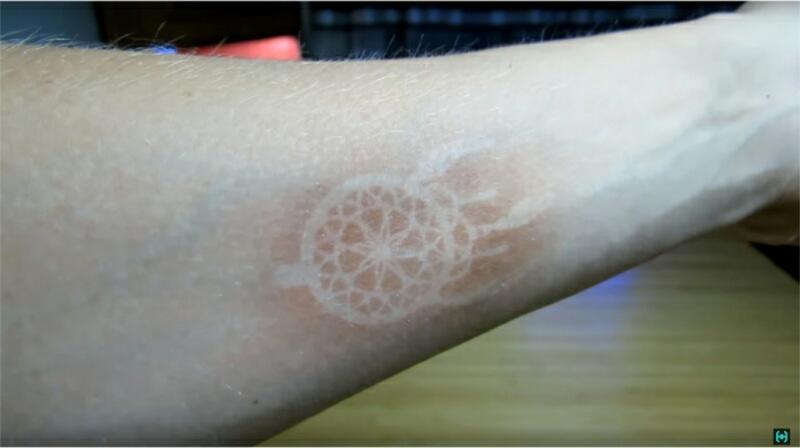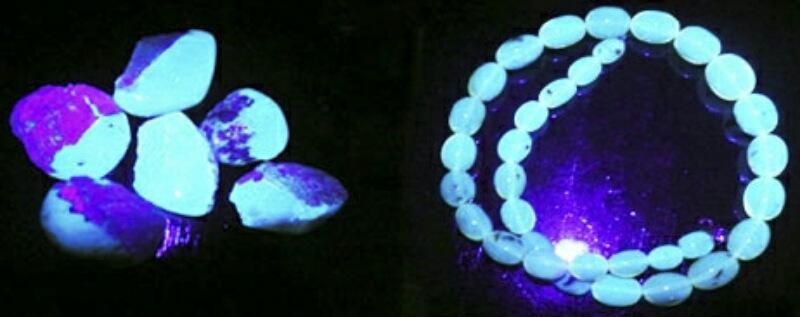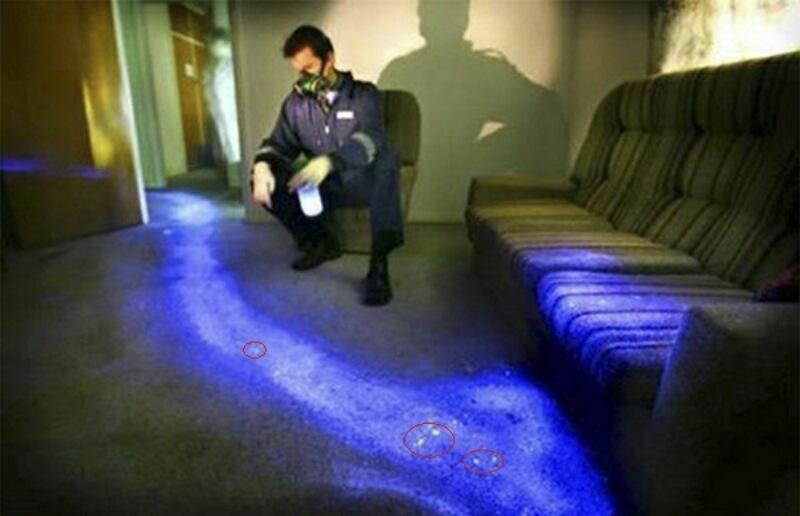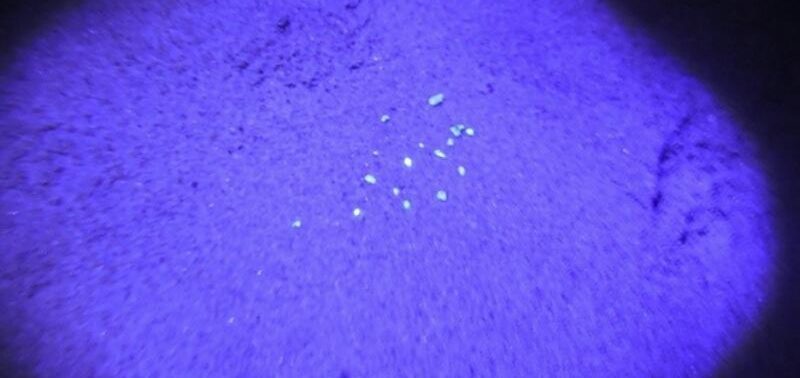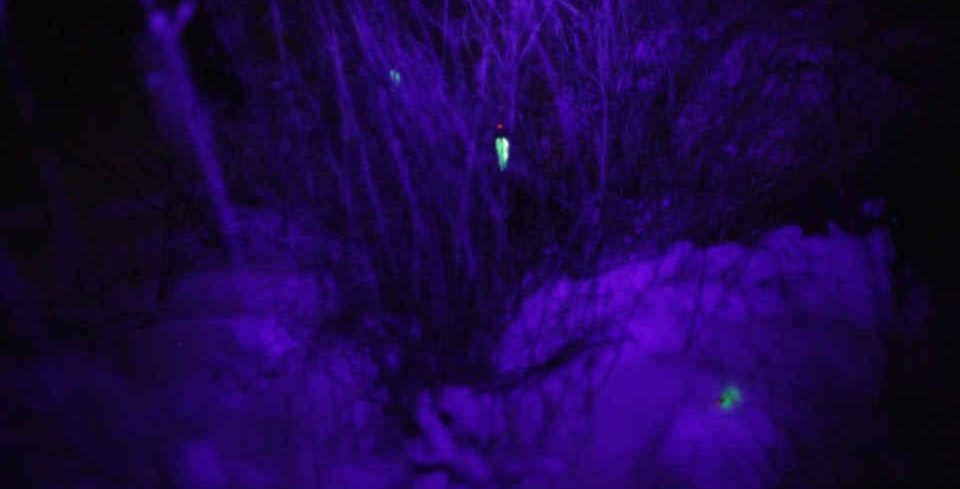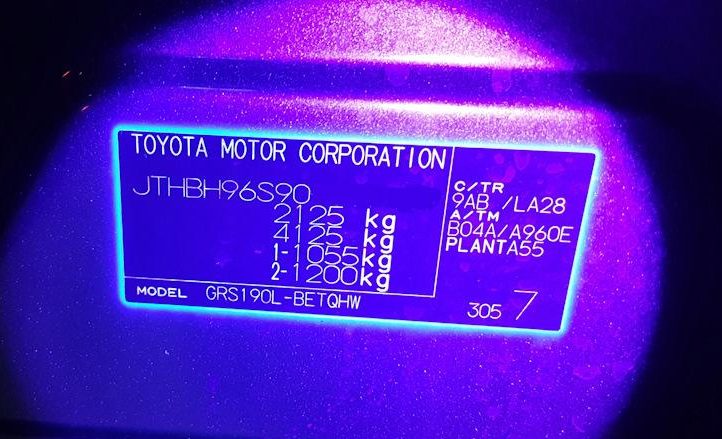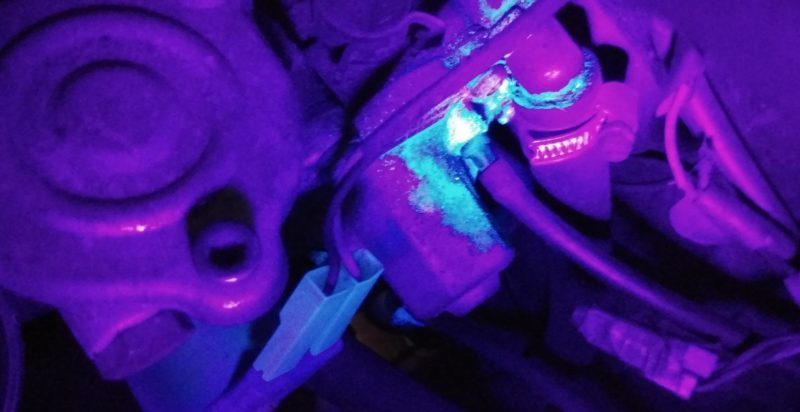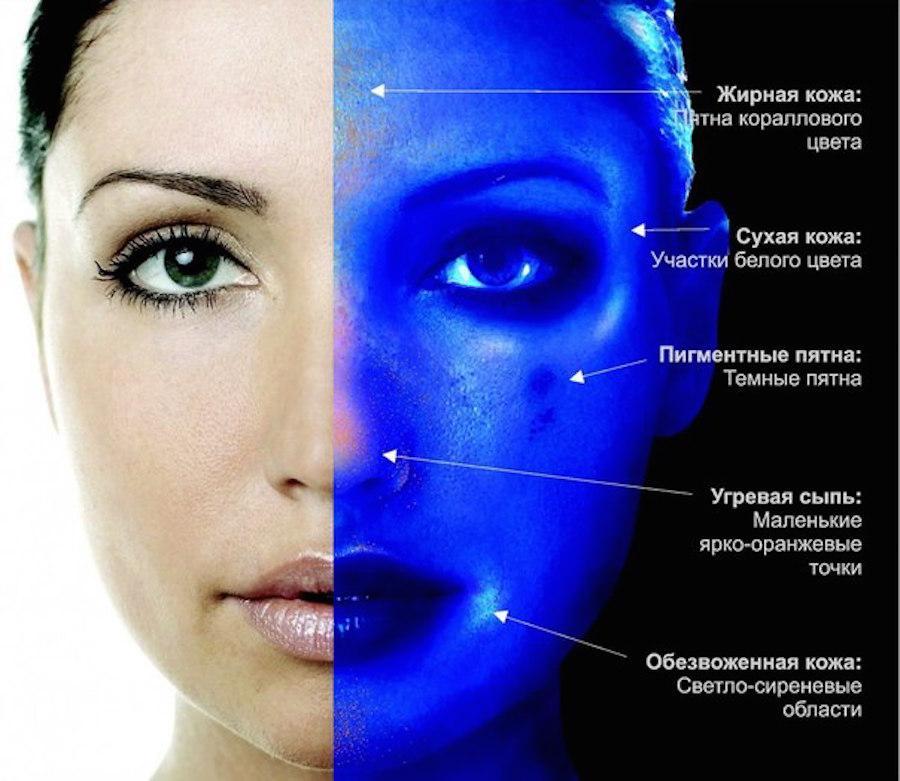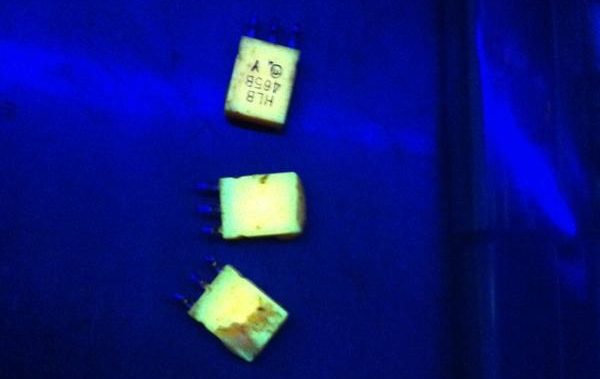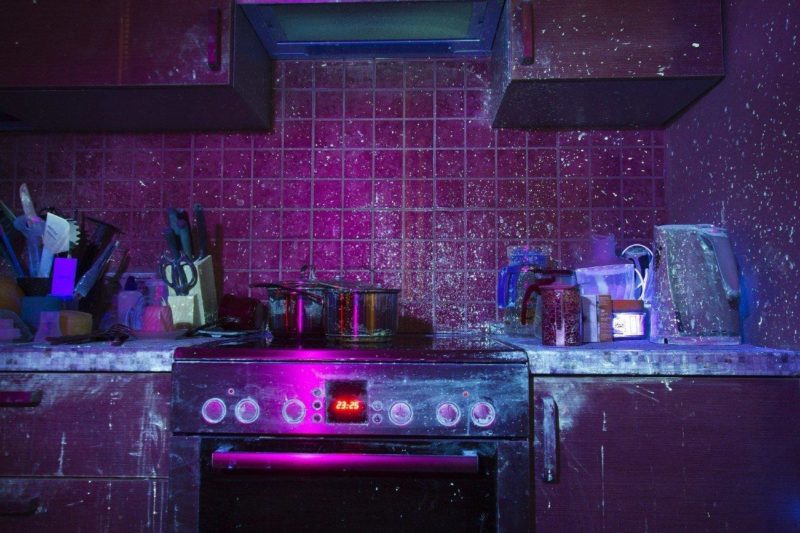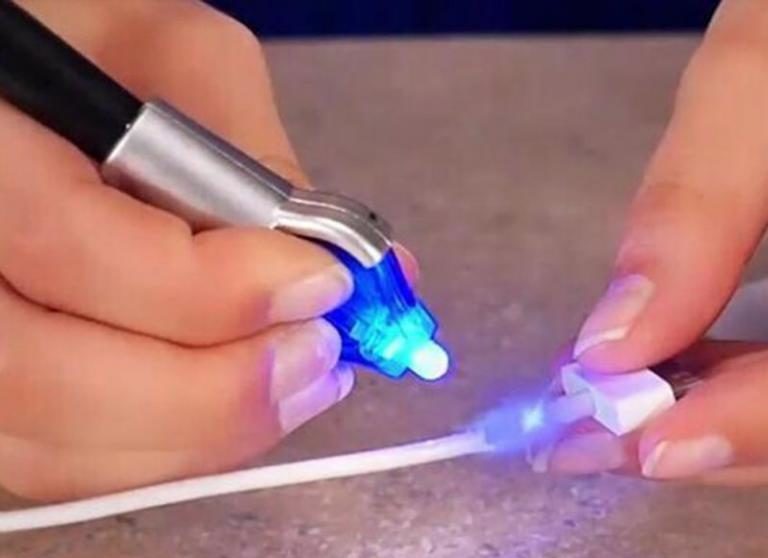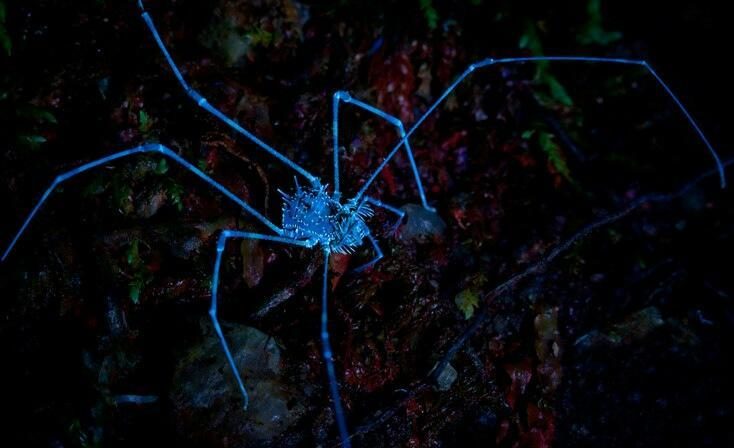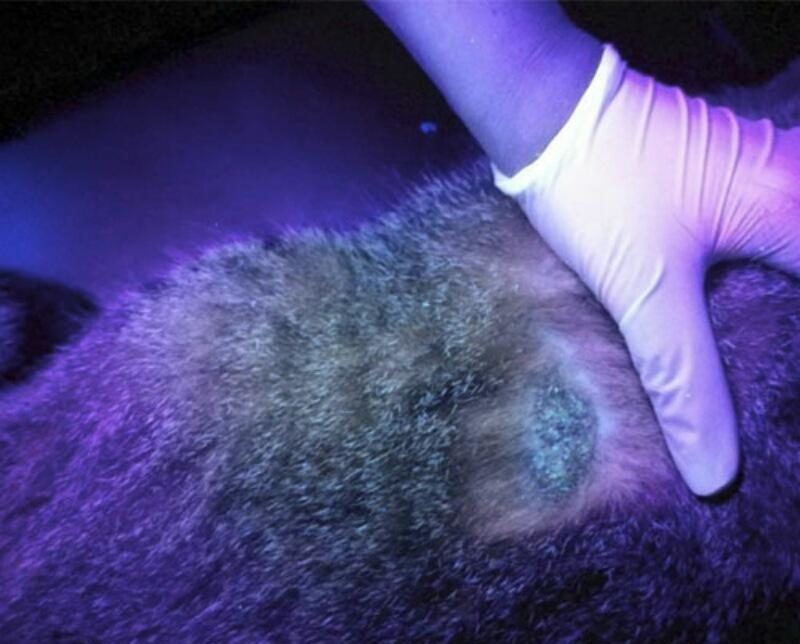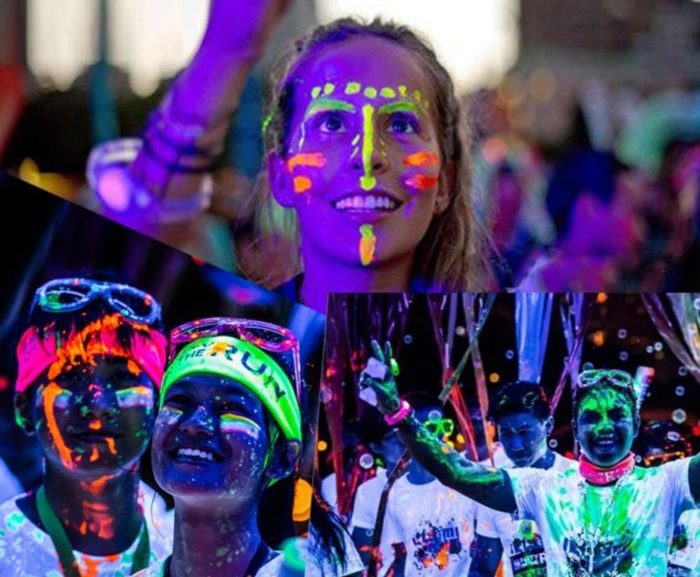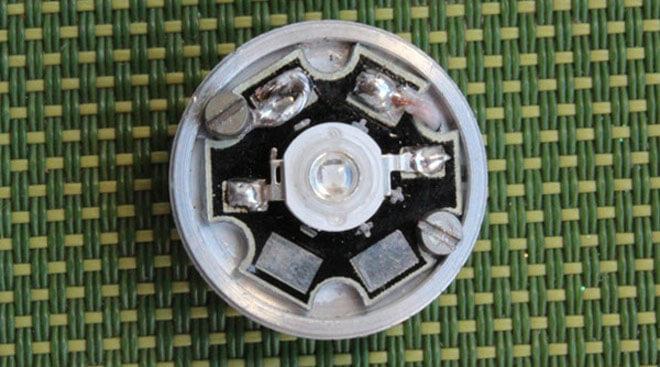Features of an ultraviolet flashlight
Variety of UV flashlights
The human eye can only see objects in a certain spectrum and many things remain hidden, but there are ways to make them visible. The fact is that most of the substances that are indistinguishable or poorly distinguishable in daylight, are capable of fluorescing, that is, glow in a special way in the ultraviolet luminescence range. It was to determine these components was adopted UV flashlight, and its modern versions are so compact that fits in a lighter or keychain. Depending on the type of light source UV-lamps are:
- Gas-discharge - are a bulb filled with mercury vapor that emits ultraviolet when a high-frequency current passes through it. Mobile versions are implemented in currency detectors and forensic lamps;
- LED - represented by an LED with a crystal without a phosphor shell, emitting light in a given range.
Nowadays, LED elements have become the main source of light for lighting devices, because their service life is longer than that of gas-discharge, they consume relatively little energy and are compact.
The use of LEDs allowed to make mobile UV-lights of different types:
- Head-on - mounted on the head to allow manipulation with the hands. Some headlamps have two types of light sources for switching between normal and UV mode;
- Pocket lights - are used in everyday life;
- searchlights - quite rare, as the use of expensive devices is appropriate only for narrow applications;
UV LED lamps are powered by standard batteries and rechargeable batteries of the same type as conventional ones, because their power consumption and driver circuit are not different from standard LED systems. On any LED-lantern you can independently rearrange the UV-elements of the same power and they will work.
Pros and cons of UV flashlights
UV rays make it possible to detect and identify objects that are invisible in ordinary light, but their use is associated with some difficulties. First, the fluorescence of most substances is visible only in the absence of natural or artificial light. That is, the bulb will work during the day, but only in strong shade, and for a hundred percent result will have to conduct research in a completely closed room. Secondly, it will be difficult to use a UV flashlight as an ordinary everyday light, because even a powerful spotlight produces an insufficient spectrum of visible light, and the color of ordinary things in ultraviolet light is highly distorted. In addition, it is necessary to consider the dangers of UV radiation, although much depends on the conditions and duration of use of the device. By and large, people are exposed to sunlight every day, which also includes the UV range. The spectrum of most LED lights lies in the relatively safe, long-wave UV-A range of 365 to 395 nanometers.
The greatest danger to humans is the aggressive short-wave bands from UV-B and below. However, it is worth following the rules when using even low-power UV lights:
- Do not direct the beam of light into the eyes - the human eye is sensitive to UV radiation, which can cause burn the cornea with symptoms of conjunctivitis.
- Reduce skin exposure to a minimum - especially relevant for people with hypersensitivity to light and cancer. As proof of the dangers of UV from LED elements, an experimental course of irradiating a section of skin through a patterned stencil with a pocket flashlight with a wavelength of 365 nm was conducted.
Adhering to these two rules, you can eliminate or minimize the possible harm, and some features can even be used for cosmetic purposes.
Why do you need a UV flashlight?
First of all, the need for certain mobile UV devices is due to the scope of their application, for example:
- Geology - different minerals give fluorescence in different colors, which is used to identify minerals. In particular, such a search is practiced by amber searchers, which gives a characteristic blue and turquoise glow. By the way, this is how fake products are separated from genuine ones when buying amber bijouterie;
- Forensic sciences, such as blood, saliva, urine, sperm, sweat, and, in general, all human biological fluids, even after they have been washed off, remain preserved in the pores and micro-cracks of the cover. To detect after careful covering of traces in the usual way such residues are impossible, but under a UV-lamp it is elementary;
- Hunting - at night the search for a hidden blunderbuss becomes much easier if you use powerful UV-finder;
- to make it easier to find lost arrows at night, their plumage is made fluorescent;
- night fishing - to attract fish the lures are made to glow in the UV rays;
- trade in cars - underlying layers of paint and putty in the places of artisanal body repair are exposed under UV. In this way it is determined if the car was in an accident. True, for such investigation you will have to drive a car in dark garage or wait for night. The modern factory marking of car body and engines is also made fluorescent;
- The same principle is used by car mechanics to look for places of oil and antifreeze leakage from aggregate units;
- Medicine - some skin diseases are accompanied by the release of fluorescent products of microorganisms. The flashlight is equipped with a Wood filter that cuts off the visible light spectrum for greater contrast and easier diagnosis;
- electrical engineering - for identifying radio components that have a given color of glow in the ultraviolet.
Domestic applications
At home, UV-lamp helps to control the quality of cleaning, revealing the remains of organic contaminants, invisible at first glance. The photo below shows a "perfectly clean" kitchen.
The flashlight is also used to cure photocomposite glue, which is stronger and more practical than hot melt glue, which softens when heated.
Some insects and spiders also fluoresce in different colors, making them easier to spot on clothing and indoors during disinfestation.
With the filter Wood filter it is easy to diagnose ringworm in pets and humans. In the light of a flashlight, the affected areas glow greenish.
The use of fluorescent markers and paints allows you to make an atmospheric holiday or party with memorable photo shoots.
However, for the realization of a large-scale event you will need a unit more powerful than a pocket-sized one, and prolonged irradiation can lead to eye injury. So it's better to limit such events to 30-40 minutes, and then have fun with normal lighting.
To check the bills.
Most often the ultraviolet flashlight is used to check the authenticity of money. Special fibers are added to the bill paper and watermarks are printed on them, visible only under UV rays. Some of the images are visible in normal light, while under the UV flashlight visually changes to another.
How to choose the right one
First of all, you need to be guided by the intended purpose. If you need a device for hunting, you will need a powerful headlamp Or a handheld searchlight. If underwater night hunting is planned, you need a waterproof diving flashlight. For radio amateurs, a device with a flexible leg or tripod mount will do. Flashlights with a spectrum of 365, 395 and intermediate 380 nanometers are sold for domestic use. In this regard, better show the LED-elements with a wavelength of 365 nm, because when checking bills for the identification of some signs of authenticity is not enough 395 nm.
In the photo, you can see that watermarks under a 395nm lamp are poorly visible or not visible at all while the 365nm LED clearly shows the watermarks, changes the color of the number to orange and contrasts the areas against the background. This effect helps to determine when buying a flashlight, whether the product corresponds to the claimed characteristics. The only note regarding the more aggressive spectrum of bulbs with a wavelength of 365 nm. They should be used with more caution and not directed into the eyes. Longer wavelength lights give off a lot of visible purple light that interferes with identification and fails to manifest some elements, but they are virtually harmless.
